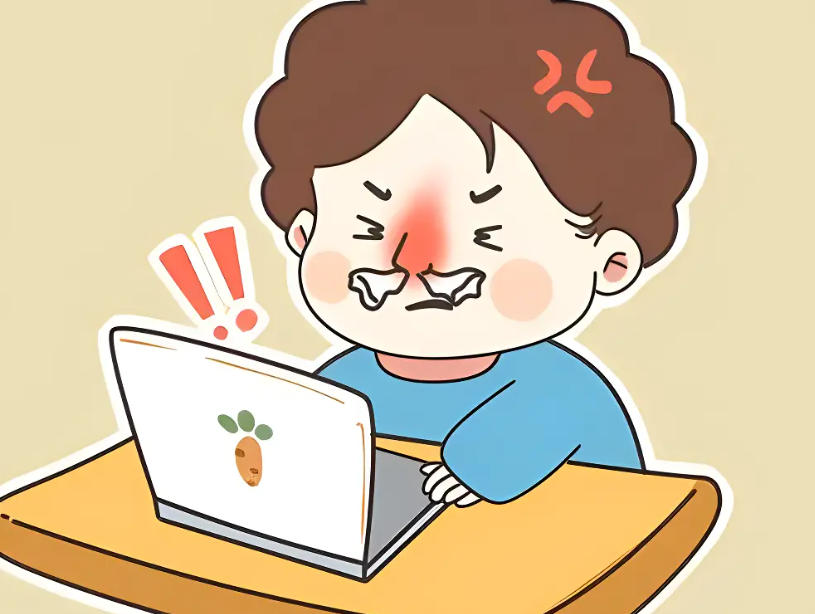
Since the beginning of winter, due to the unusually dry weather, coupled with large changes in indoor and outdoor temperature differences, the number of patients who went to the hospital for nosebleed increased significantly, most of them are the elderly and children.
Experts remind that the nose is easy to bleed in winter, if you do not take appropriate first aid measures in time, not only to control the disease is not helpful, but also may delay the disease.
Children and the elderly should be especially careful
Winter is the season of high incidence of nasal bleeding, and dry, fire, nasal cavity itself has a certain relationship.
On the one hand, the outdoor weather in winter is cold and dry, and the indoor heating or air conditioning environment is dry.
Dryness of mucosa can easily cause rupture and bleeding.
If the injury to the blood vessel is larger, the bleeding is more.
Internal dryness is also one of the inducements, winter cold, people like to eat spicy and fragrant dry products, hot endogenous, nasal mucosa is easy to dry and rupture bleeding, there are some people due to infection with wind cold, wind cold heat, lung heat fire, burn nasal blood or forced blood, and see nosebleed.
In addition, nasal diseases themselves cause epistaxis, such as nasal septum deviation, nasal hemangioma, nasal trauma and tumors.
Experts stress that children and the elderly should be especially careful of nasal bleeding in winter.
Children frequent winter rhinitis, nasal discharge and repeated wiping nose, its nasal muscle membrane delicate, so easy to damage and bleeding.
In addition, rhinitis is easy to itch the nose and repeatedly rub the nose, but also easy to epistaxis. Elderly arteriosclerosis, poor vascular elasticity, winter easy to increase blood pressure, nasal local bleeding opportunities to increase.
Nosebleed should not panic correct hemostasis need to understand
If once a nosebleed occurs:
Never panic.
If a nosebleed suddenly occurs, many people are often at a loss. At this time, the first thing to calm down, can guide the patient to do slow and deep breathing, in order to fully relax.
No two supine.
Do not lie on your back or back when you have a nose bleed, because the blood will flow from the back wall of the pharynx into the esophagus and stomach, and soon it will vomit out from the stomach, which covers up the truth of the nose bleed.
Take the sitting or half sitting position, pay attention to keep the respiratory tract unobtrusive, prevent blood from flowing into the mouth through the back nostril, but also guide the patient to spit out the blood flowing into the mouth as much as possible, to prevent the blood from irritating the gastrointestinal tract after swallowing, causing nausea, vomiting or accidental inhalation of the respiratory tract and causing suffocation.
Three avoid paper rolls, cotton stuffing.
This not only does not have a hemostatic effect, unclean paper rolls and cotton will cause inflammation.The correct treatment of nosebleed is to firmly press both sides of the patient's nose with the second knuckle of the thumb and index finger, because the nose bleed is generally in the front of the nasal septum, pressing both sides of the nose can generally stop the bleeding.
In addition, a cold towel can be applied to the patient's forehead to help stop bleeding.
When nosebleed stops or self-rescue is ineffective, you must go to the hospital for examination, especially for repeated and frequent bleeding, the cause should be identified, handled according to the situation, and the recurrence of bleeding should be prevented.Four tips to help prevent winter nosebleedsPrevention of nosebleed in winter is mainly to prevent dryness and fire.
-
Diet: eat less spicy, hot pot and other hot food, eat less such as chocolate, cookies, French fries, seeds and peanuts and other fried dry goods, such food is easy to produce hot.You can eat more food such as bitter melon, mung bean soup, dragon fruit and so on.Usually soak water can choose 3 grams of winter mulberry leaves, plus white grass root, scutellaria and ophiopogon, and appropriate to add some licorice.
-
When a small amount of nasal bleeding is repeated, saline nasal spray and ointment should be applied to the nasal cavity on time to prevent dry bleeding.
Local application of scutellaria ointment to nasal cavity can not only lubricate mucosa locally, reduce surface tension, but also clear heat, remove fire, cool blood and stop bleeding.
-
Environment and living habits: indoor air humidifier, warm air to protect the nasal mucosa is very effective.Keep defecation smooth, usually can not pick the nose, rub the nasal cavity, reduce the damage to the nasal mucosa.
-
Actively treat rhinitis and other related diseases as well as systemic chronic diseases to eliminate pathogenic factors.

